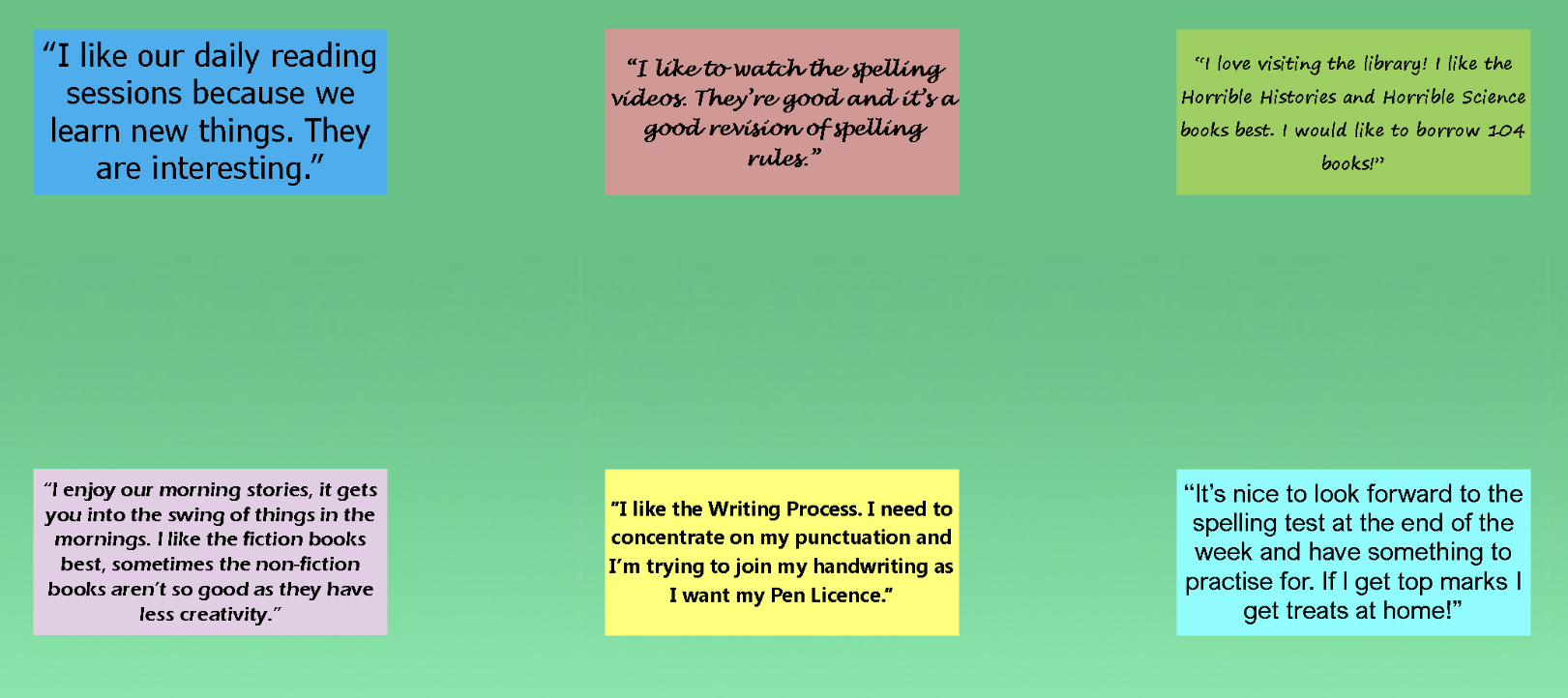English
English at HCPS is led by Mrs K. Beaumont.
 |
| Mrs K. Beaumont |
Parent Reading Zone Assessment
English Curriculum
-
English Writing Long Term Plan
download_for_offline
↑
download_for_offlineEnglish Writing Long Term Plan
- HCPS Handwriting Guide download_for_offline
download_for_offlineHCPS Handwriting Guide
- HCPS Reading Spine Texts download_for_offline
download_for_offlineHCPS Reading Spine Texts
- HCPS Spelling And Little Wandle Phonics Long Term Plan download_for_offline
download_for_offlineHCPS Spelling And Little Wandle Phonics Long Term Plan
Aims and Objectives:
The aims of English at Hornsea Community Primary School are to:
- provide a stimulating language-rich environment where pupils are able to work collaboratively, and where speaking and listening, reading and writing are inter-related;
- help children develop competence and confidence in all aspects of their language development;
- develop pupils’ capacity to listen attentively, and with understanding, in a variety of situations
- ensure continuity and progression in the provision of language experiences in school, including the delivery of the Primary National Strategy’s Literacy Framework;
- encourage children to view reading as a lifelong pursuit, giving pleasure, enjoyment and information and help children to develop the skills required for reading and responding to a wide variety of texts;
- help pupils to understand the importance of reading for learning across the curriculum and for the requirements of life and work as members of society.
- enable children to develop the skills, attitude and knowledge necessary to write independently and effectively for a wide range of purposes and audiences, and to take pride in a high standard of presentation;
- ensure equal opportunities for all children to gain access to the language curriculum. To foster respect for the different languages brought to school, as well as developing a use and understanding of standard English;
- ensure that the teaching of phonics in the Early Years and at Key Stage 1 is taught in line with the Letters and Sounds document and the Early Years Foundation Stage (EYFS) Framework;
- ensure the school fulfils national requirements regarding Programmes of Study and approaches to teaching, in line with the current National Curriculum.
- to take account of draft information for the new Core Curriculum where applicable e.g. relating to Grammar and Punctuation.
- actively encourage parents to participate and share in their child’s language development, reading and writing, both in English and in any home language.
Intent
At Hornsea Community Primary School we believe that language is the tool by which we communicate and that it is inextricably bound up with all learning. We are committed to developing children’s competence in the understanding and expression of spoken and written language. We believe that language skills, knowledge and understanding can be taught and developed in the context of the whole curriculum, and as part of the daily English lesson. Language learning should be meaningful and relevant to the learners, not broken up into abstract pieces. All components of language - speaking and listening, reading and writing - are of equal importance in developing the communicative skills of the individual child. We consider that consistency of approach towards the teaching and learning of language throughout the school is vital for successful language development. It is part of the ‘essential knowledge’ (p.6 National Curriculum) that is needed in society:
‘Teachers should develop pupil’s spoken language, reading, writing and vocabulary as integral aspects of the teaching of every subject. English is both a subject in its own right and the medium for teaching; for pupils, understanding the language provides access to the whole curriculum. Fluency in the English language is an essential foundation for success in all subjects.’ (p.10 National Curriculum)

- HCPS Handwriting Guide download_for_offline




